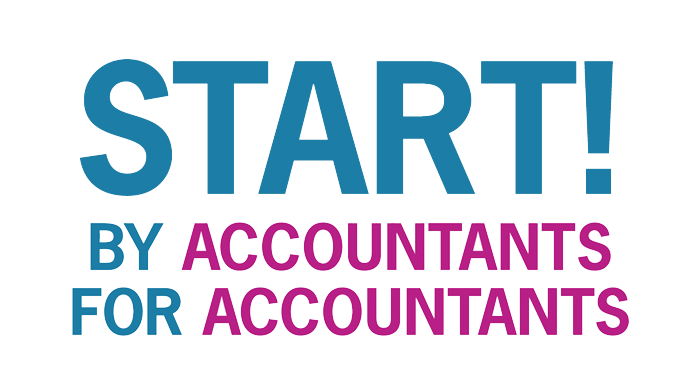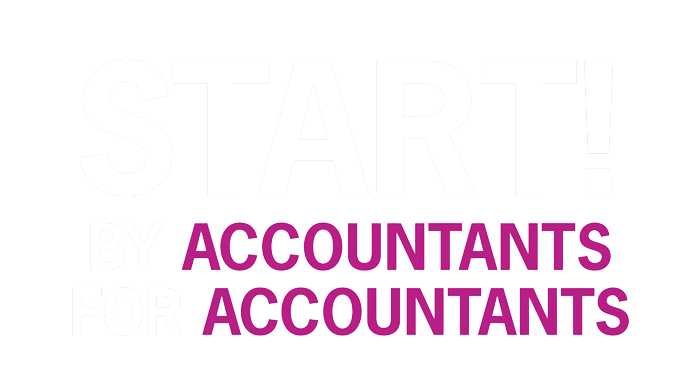5 Ways I Transformed my Business no. 1: Systems and Processes
When starting out I had no set or predefined systems or processes. I had left practice very soon after qualifying and the practice work experience I had was mostly in audit. It wasn’t the best training for me if I was going to start running a small practice!
I knew the work that needed to be done but I had no system. I learnt on the job so to speak and put it together as I went along. As I became busier I started to realise that my processes needed to change. I specifically focused on:
i. The right software for doing the work
I needed to identify a specific accountancy software package to work with. One which would be the best fit for the types of clients I wanted to work with (see point 3).
Early on I had taken on clients keeping any type of records – paper, spreadsheet, desktop software and cloud software.
I was spending too much time familiarising myself with each client’s records, it was inefficient. If I was to grow my team these inefficiencies would be compounded, their learning of all the different accounting systems used would be slow and frustrating.
It would be so much easier, efficient and enjoyable if there was just one system to work with.
I took the decision to start to move all clients onto Xero accounting software and only take on new clients if they were already using Xero or were happy to move to Xero.
Why Xero? Because in my opinion it’s the best software available for small businesses. You can read more about why I believe this here .
It’s a huge advantage to have just one type of software to work with. Added to this are the advantages that cloud software brings with real time information, bank feeds, automated bookkeeping, add on applications (more than 700 apps in the Xero ecosystem as I write this) and being able to provide real time support and information to clients.
ii. The right approach to doing the work – where, when and how
It’s very easy to become reactive. A client tells you he/she needs work doing, you do it. A client needs their accounts next week to get a mortgage, then another does and another.
You work flat out in December and January, seven days a week, 12+ hours a day, just to make sure tax returns are done before the submission deadline.
Why? Because you’re allowing clients to dictate when work is done and how.
I identified that I needed a system and a process whereby I was in control of when work was done and how. Cloud software has meant that I can decide what work is done and when, we are not reliant on the client.
I schedule work each month, identifying what needs to be done and when. Repeating tasks such as bookkeeping, payroll and vat are straight forward. It’s the completion of year end accounts and tax returns which requires planning. Knowing in advance which jobs you want to complete and then requesting information from clients – often just copies of year end bank statements ( you should already have the rest) – to enable the work to be completed on plan.
I know now, 90% of the annual accounts work which will be completed in the next 3 months. The missing 10% is jobs which will either be delayed or brought forward; depending on clients needs.
In the vast majority of cases, when work is completed it is decided by me, not the client. Clients are not chasing for work to be completed, we plan to complete it ahead of when they will need it.
Yes there are always instances when a client has an urgent need for something and by planning work (which we are in control of) we can accommodate this.
iii. Educating of and communicating with clients
This is crucial. All the best internal systems and processes will fall down if you don’t communicate effectively with clients.
You also need to spend time educating them. If you introduce them to Xero, make sure they understand the basics and that you check with them on a regular basis to make sure they’re happy with it. Its pretty demoralising when you start what should be a straight forward year end job only to find your client has made mistakes all through the year that could have been easily avoided with a few minutes training.
iv. Avoiding inefficient and unproductive meetings
This can be a killer. Clients asking for face to face meetings, worse still – at their premises, you agree, only to find that you could have dealt with the issues over the phone, by email or in an online meeting.
Before agreeing to meetings, ask what your client wants to discuss and set an agenda and a time limit for the meeting. This isn’t being rude, it’s just being organised.
And, if it’s a meeting which is outside of their service package, make sure you charge for it. Notifying clients that there is a minimum charge for ad hoc meetings avoids each of you wasting time.
v. Utilising technology
I’ve already mentioned cloud accounting software. There are a huge number of business applications which can be linked to Xero to improve efficiency, business operations and profitability. You need to have an understanding of the apps that are out there, but just be careful that you don’t fall into app overload and take out so many subscriptions you lose focus on what it is you’re really trying to achieve.
Find out what are the essential apps which you think most businesses will find useful – AutoEntry, Receipt Bank or Hubdoc for automated data entry being the obvious ones.
Beyond this, perhaps segment your client base and for example, see which apps e-commerce clients are using well and suggest those to other similar clients. Xero has an app eco system of more than 700+ add ons – there is no way you can be expected to know them all.
A big caveat here though – don’t get sucked into using unnecessary products just because the software vendors tell you ‘all the cool kids’ are using it. Work out what you really need, what will be useful for your clients and what make your operation more efficient.
I have wasted a huge amount of time trialling and then using software for up to 6 months before ditching it as an unnecessary cost which added no value. The ‘advisory’ reporting software sector is the easiest area to get sucked into here, in a lot of instances the cost v value analysis just doesn’t stack up.
vi. How you want to work
This aspect is really important to me. I have never wanted an office that I’m tied to. In the same way I never wanted to do a standard 9-5 working day, which was more like 8 – 6 in reality (plus a 90 minute commute each way).
I have designed work around my family life.
I have taken my children to school most mornings, usually picked them up in the evening and sat down to dinner with them most nights.
I fit work in around this.
I want my team to have the same flexibility. Everyone in the team knows what they need to do and they know the due dates for work. It’s then down to them to do the work, fitting it around their lives.
We all have busy lives, to make it more enjoyable, work needs to fit around everything else we need to do.
Clients don’t care what time you do the work, just that it gets done. If that’s 10am or 10pm it doesn’t matter.
Remember – you’re in control of this. You decide when to work. If you’re worried about missing vital calls (and there’s no-one else in your team to take calls) use a call answering service. Moneypenny have been superb for my business.
If you’d like to work with Start Accountants to improve your practice/work life balance/help you enjoy work more, please get in touch.

